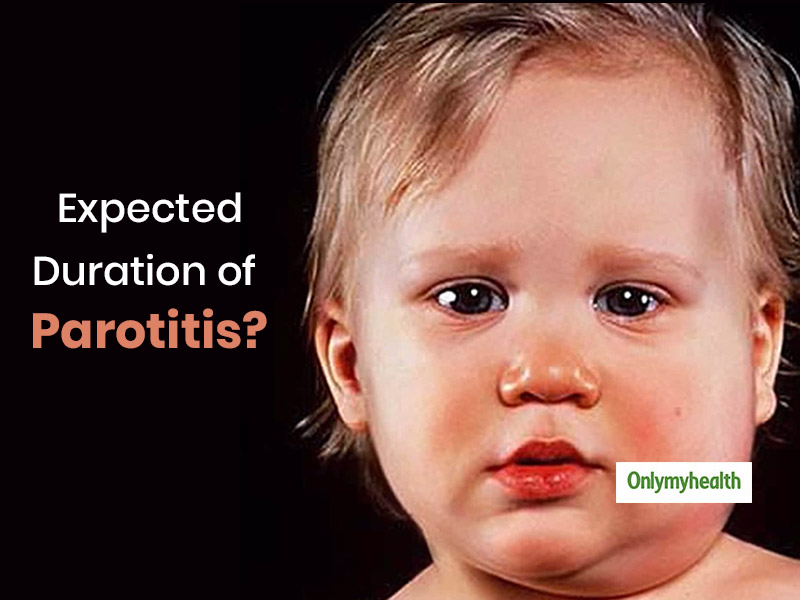
Parotid glands are the major salivary glands which are located lateral to the masseter muscle anteriorly and extending posteriorly over the sternocleidomastoid muscle behind the angle of the mandible. Parotitis is the condition where there is an inflammation of the parotid glands. Infections range from acute to severe. There are many causes to it.
Table of Content:-
Reinfection also occurs but it becomes mild. One in every ten thousand people who have an infection die and about 0.1 per cent to one per cent of the population is affected every year without vaccination. It is a common disease in developing countries where there is less vaccination. Children between the ages of five and nine are most affected by the disease. Every year less than 100 thousand cases are reported in India.
Causes of parotitis

- Dehydration: This is a common, non-infectious cause of parotitis. It may occur in elderly person or after surgery.
- Infectious parotitis: They are:
- Acute bacterial parotitis: Caused by bacteria called Staphylococcus aureus. They are associated with swelling at the angle of the jaw and usually produces pus. The person suffers from fever, severe dehydration, chills etc. More frequently seen in elderly patients, neonates and postoperative patients.
- Acute Viral Parotitis: This is the most common viral parotitis (Mumps) seen especially in children. Mumps resolve on its own in about10 days.
Juvenile recurrent parotitis (JRP) is the second most common inflammatory cause of parotitis in children.
- HIV Parotitis: HIV associated parotitis presents enlarged parotid gland and a dry mouth.
- Autoimmune causes: Also known as chronic autoimmune parotitis.
- Blockages: Blockage of the main parotid gland or any of its branches causes parotitis. This may be due to salivary stone (salivary duct calculus), mucous plug or tumour.
The disease of uncertain cause: There are many uncertain causes some of the major and commonly seen are:
- Chronic nonspecific parotitis
- Recurrent parotitis of childhood (clinically resembles mumps)
- Sialadenosis (commonly seen in the persons aged between 20-60 years)
- Pneumoparotitis
Also Read: Manage stress effectively: Dr Satish Kale
Risk factors of parotitis

- In those places where the disease usually spreads, the risk of mums is high.
- The risk of this disease increases in people whose immune system is weak.
Also Read: 6 Home Remedies To Get Rid Of Alcohol Addiction
Symptoms of parotitis
There is a sudden onset of indurated, warm, erythematous swelling in the auricular areas associated with local pain, high fever, chills and tenderness.
- Fever, headache and malaise - these symptoms cause pain in the breasts.
- Progressive swelling in one or both parotid glands - it lasts for a week.
- Dry mouth
- Sore throat / or ears
Duration
Generally, episodes begin by the age of 5 years and virtually patients become asymptomatic by the age of 10-15 years. Usually, its effects for 3-7days but even may last 2-3 weeks in some individuals.
Prevention

The vaccine for measles, parotitis and rubella (MMR) is usually given to a child between 12 and 15 months of age and later between 4 and 6 years. Parotitis vaccine is about 88% effective by giving two drops.
Parotitis - Lifestyle Tips
- The affected person should set himself apart to prevent the spread of the disease to others.
- To avoid spreading the disease through air particles, sneeze and cough in a tissue or elbow.
- Apply cold or hot fomentation to reduce the pain of swollen glands.
- Mums infection in the first trimester of pregnancy increases miscarriage.
- Parotitis virus is capable of infecting the placenta and fetus (photos), but many studies have failed to make connections between gestational mums and femoral scarf.
- Congenital parotitis can sometimes cause the newborn to have trouble breathing.
- Neonatal thrombocytopenia and splenomegaly also occur after perinatal infection.
- However, the increase in mums during pregnancy proves the weakening of the fetus.
(Inputs by Dr Vanishree Aithal, MD, Birla Ayurveda)
Read more articles on Other Diseases
How we keep this article up to date:
We work with experts and keep a close eye on the latest in health and wellness. Whenever there is a new research or helpful information, we update our articles with accurate and useful advice.
Current Version